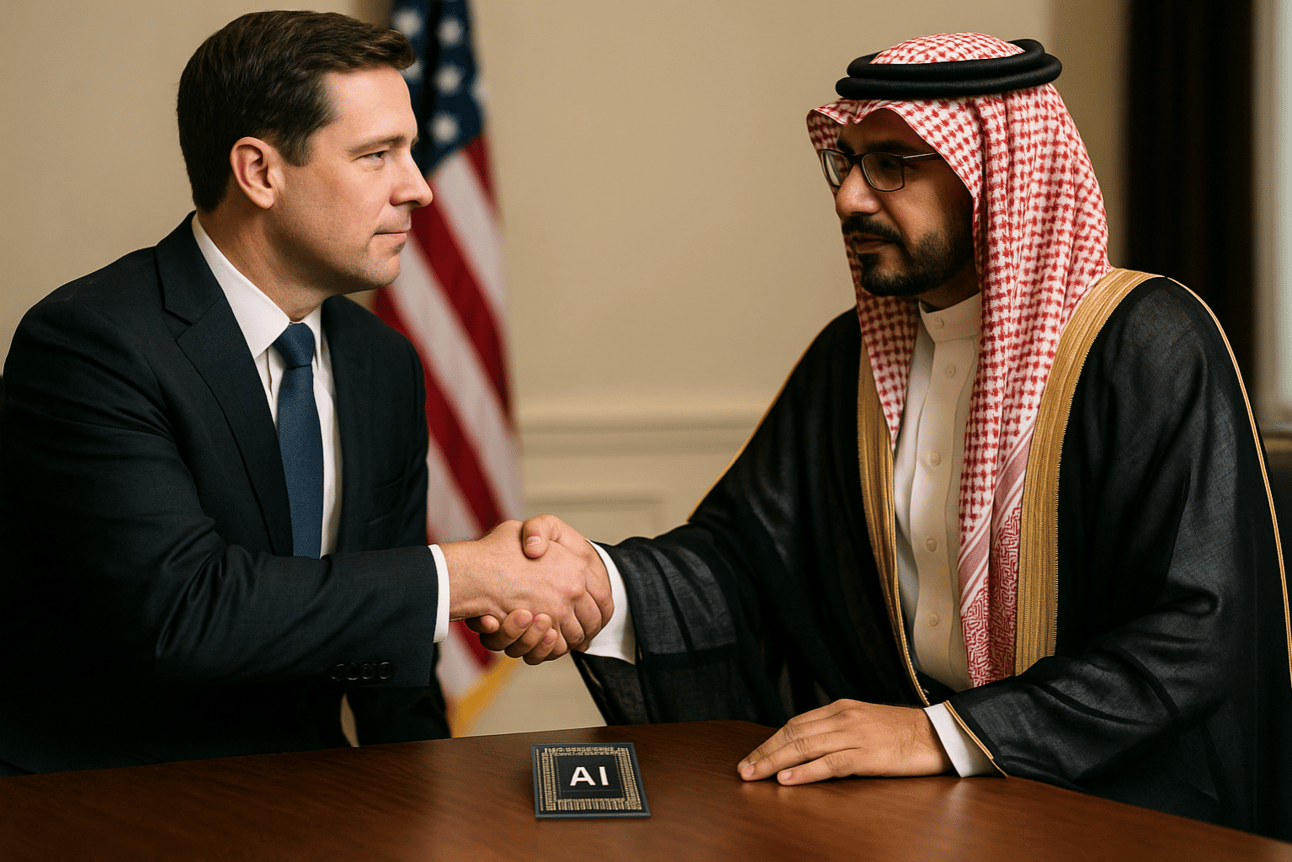
Image Source: ChatGPT-4o
Commerce Department Rescinds Biden AI Rule, Tightens Chip Export Controls
The Department of Commerce announced today that it is formally rescinding the Biden Administration’s AI Diffusion Rule, while simultaneously taking new steps to tighten export controls on semiconductors worldwide.
The AI Diffusion Rule, issued on January 15, 2025, was set to go into effect on May 15, 2025. It would have introduced new compliance requirements that critics argued would burden American companies, stifle innovation, and strain diplomatic relations by downgrading dozens of U.S. partners to second-tier status.
The Bureau of Industry and Security (BIS) plans to formalize the rescission through a notice in the Federal Register and will issue a replacement rule in the future. In the meantime, Under Secretary of Commerce for Industry and Security Jeffery Kessler has directed BIS officials not to enforce the rescinded rule. In a statement, Kessler said:
"The Trump Administration will pursue a bold, inclusive strategy to American AI technology with trusted foreign countries around the world, while keeping the technology out of the hands of our adversaries. At the same time, we reject the Biden Administration’s attempt to impose its own ill-conceived and counterproductive AI policies on the American people."
Strengthened Controls on AI Chip Exports
Alongside the rollback of the AI Diffusion Rule, the Department of Commerce introduced new actions aimed at safeguarding U.S. technology:
Issuing guidance clarifying that the use of Huawei Ascend chips anywhere in the world violates U.S. export controls.
Warning the public about the risks of U.S. AI chips being used for training and inference of Chinese AI models.
Advising U.S. companies on how to protect their supply chains against tactics designed to divert restricted technologies.
Officials emphasized that these measures are intended to ensure the United States remains a global leader in AI innovation while protecting national security interests.
Following the rescission of the Biden-era AI Diffusion Rule, U.S. export policy now focuses on restricting specific foreign technologies — notably banning Huawei Ascend chips globally — while maintaining an open stance toward AI chip exports to trusted partners like Saudi Arabia. The new approach seeks to balance national security priorities with continued international AI collaboration.
A Shift Toward Openness with Allies
Speaking in Riyadh at the Saudi-U.S. Investment Forum, David Sacks, the White House’s AI and crypto czar, echoed the administration’s more open stance on AI technology exports. Sacks indicated that the U.S. can mitigate national security risks without broadly halting the global spread of its AI chips.
"The Trump administration has just announced that we will be rescinding what's known as the Biden diffusion rule... it literally restricted the diffusion or proliferation of American technology all over the world," Sacks said.
Addressing concerns about trusted partners, he added:
"(Diffusion) is not a risk with a friend like Saudi Arabia at all but I think in general there was a great deal of misunderstanding about the diversion of GPUs."
His remarks mark a notable shift from recent restrictions on data center technology transfers and signal a deepening of U.S. tech ties with Middle Eastern nations. Countries like Saudi Arabia are investing heavily in AI infrastructure with ambitions of becoming regional hubs for emerging technologies.
Sacks also emphasized that the original diffusion rule targeted "countries of concern" such as China, not allies or strategic partners.
The AI Diffusion Framework was issued in the final days of the Biden administration after a four-year effort to limit China’s access to advanced semiconductors, aiming to maintain U.S. leadership in artificial intelligence and protect national security.
What This Means
The Trump administration’s decision to rescind the AI Diffusion Rule marks a strategic shift toward a more flexible and targeted approach to regulating AI technology exports.
Rather than imposing broad restrictions that could have hindered international partnerships, the new policy distinguishes between adversaries and trusted allies.
Technologies linked to national security risks—such as Huawei’s Ascend chips—are now explicitly banned worldwide. Meanwhile, exports of U.S. AI chips and technologies to trusted partners like Saudi Arabia will continue, supporting global collaboration and economic growth.
Context: U.S.-Saudi Relations
While Saudi Arabia has faced criticism from U.S. leaders over human rights concerns, recent years have seen a shift toward renewed strategic cooperation. Both the Biden and Trump administrations have strengthened ties with Saudi Arabia through defense, technology, and investment partnerships, positioning the kingdom as a trusted partner in emerging fields like artificial intelligence.
This adjustment signals a broader U.S. strategy: to maintain leadership in AI innovation while safeguarding critical technologies from reaching rivals like China.
It also opens new opportunities for strengthening AI partnerships with countries investing heavily in emerging technologies.
The replacement rules, once issued, will further define how the United States balances innovation, national security, and international cooperation in an increasingly competitive global AI landscape.
As AI technologies continue to reshape industries and economies worldwide, evolving U.S. export policies will play a critical role in shaping the pace and direction of global AI development.
Editor’s Note: This article was created by Alicia Shapiro, CMO of AiNews.com, with writing, image, and idea-generation support from ChatGPT, an AI assistant. However, the final perspective and editorial choices are solely Alicia Shapiro’s. Special thanks to ChatGPT for assistance with research and editorial support in crafting this article.
